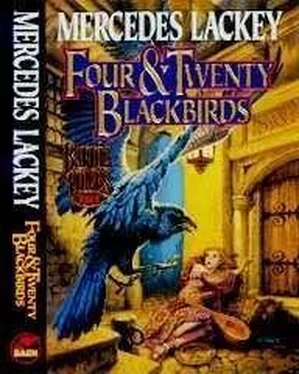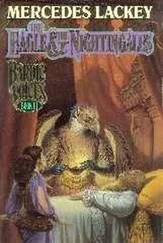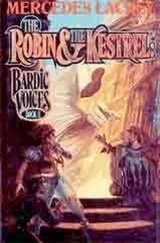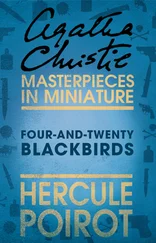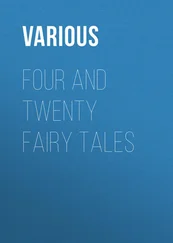Mercedes Lackey - Four and Twenty Blackbirds
Здесь есть возможность читать онлайн «Mercedes Lackey - Four and Twenty Blackbirds» весь текст электронной книги совершенно бесплатно (целиком полную версию без сокращений). В некоторых случаях можно слушать аудио, скачать через торрент в формате fb2 и присутствует краткое содержание. Жанр: Фэнтези, на английском языке. Описание произведения, (предисловие) а так же отзывы посетителей доступны на портале библиотеки ЛибКат.
- Название:Four and Twenty Blackbirds
- Автор:
- Жанр:
- Год:неизвестен
- ISBN:нет данных
- Рейтинг книги:5 / 5. Голосов: 1
-
Избранное:Добавить в избранное
- Отзывы:
-
Ваша оценка:
- 100
- 1
- 2
- 3
- 4
- 5
Four and Twenty Blackbirds: краткое содержание, описание и аннотация
Предлагаем к чтению аннотацию, описание, краткое содержание или предисловие (зависит от того, что написал сам автор книги «Four and Twenty Blackbirds»). Если вы не нашли необходимую информацию о книге — напишите в комментариях, мы постараемся отыскать её.
Four and Twenty Blackbirds — читать онлайн бесплатно полную книгу (весь текст) целиком
Ниже представлен текст книги, разбитый по страницам. Система сохранения места последней прочитанной страницы, позволяет с удобством читать онлайн бесплатно книгу «Four and Twenty Blackbirds», без необходимости каждый раз заново искать на чём Вы остановились. Поставьте закладку, и сможете в любой момент перейти на страницу, на которой закончили чтение.
Интервал:
Закладка:
So Tal would be able to examine the bodies at his leisure, and see what, if anything, was true about the story the Desk-Sergeant had heard, that there was something strange about one of the bodies.
He got his uniform cape out of his locker, and layered it on beneath the waxed-canvas cape. His baton slid into the holster at his belt, his dagger beside it, his short-sword balancing the weight on the other side. Beneath the weight of his wool tunic and breeches, knitted shirt and hose, and two capes, he was starting to sweat—better get out before he got too warm and killed himself with shock, walking into the ice-storm.
He took his spiked staff in hand and clumped slowly back out, saluting Sergeant Brock as he headed for the door to the street. There was a constable at the front entrance handing out the storm-lanterns; he took one gratefully and hung it on the hook in the end of his staff. It wasn't much, but on a night like tonight, every tiny bit of light would help, and if his hands got too cold, he could warm them at the lantern.
He opened the door and stepped into the street. There wasn't much wind, but the pelting sleet struck him in the face with a chill that made up for the lack of wind. He bent his head to it, and told himself it could be worse. It could be hail, he reminded himself.
But it was hard to think of how anything could be worse than this; ice so thick that if he had not been wise enough to strap on those metal ice-cleats, he'd have broken an arm or his neck in the first few paces, and cold fierce enough to drive every living thing from the street tonight. It would be a bad night for taverns and families with an abusive member; no one would be going out for a drink, and people with bad tempers didn't take being cooped up well. More often than not, the abuser would take out everything on people who could not run out of doors to escape him. A colicky baby that wouldn't stop crying, a child with a cough that couldn't be soothed, or a woman with the bad luck to say the wrong thing at the wrong time—the triggers were many, but the results were all depressingly the same. There would probably be a few—children mostly—beaten to death before morning. Nights like this one brought out the worst in some people, as the inability to get away set tempers and nerves on edge.
Try not to think about it. There's nothing you can do to prevent any of what's coming tonight. You'd have to have a million eyes and be everywhere at once. Tal set the spike of his staff carefully, lifted a foot and stepped forward, driving the cleats into the ice before lifting the other and repeating the motion. His beat would take three times as long to walk tonight.
He was glad that he was not the morning man, who would be the one to deal with the bodies that would turn up with the dawn. Sometimes the perpetrator would manage to hide his crime by burying the corpse or dumping it in the river, but it would take a truly desperate person to manage that tonight. They never learn; they call the dead-cart and say the mate or the kid "froze to death," the constable shows up with the dead-cart and sees the bruises or the smashed skull, and that's the end of it. Another battering, another hanging. It generally never even came to a trial; a Justiciar would see the evidence and pronounce the verdict before the end of the day. An easy conviction, but Tal was weary of them, for nothing ever seemed to change, no matter how many batterers were hung.
Maybe that's because for every one we see and catch, there are a dozen that we don't, because they don't actually manage to kill anyone. They only cripple the bodies and kill the souls of their "loved ones," they never actually commit murder. And as long as the wife doesn't complain, we have no right to step into a quarrel or a parent punishing his child.
More than the weight of the ice on his shoulders weighed him down, and he wondered for the hundredth time if he should give it all up.
No, not yet. Let me solve this last one, then I'll give it up. It was all a noble motive; tonight he was ready to acknowledge that part too. Part of it was sheerest curiosity. I want to know what can drive a man to kill someone he doesn't even know with a weapon that vanishes.
As icy as the morgue was, it was warmer than being outside. The ice-storm had finally passed as Tal finished his beat, but its legacy would make the streets impassable until well after daybreak. Even inside his boots and two pairs of socks, Tal's feet felt like two chunks of ice themselves. At least in here he could walk without having to calculate each step, and he didn't have to worry about the cleats scarring the stone floor.
The morgue was a cheerless building of thick gray stone, with tall, narrow windows set into the stone walls, glazed with the poorest quality glass, thick and bubbly and impossible to see through. The anteroom was supposed to hold a Priest who would conduct visitors to bodies they wished to claim when such appeared, and otherwise he was supposed to be on his knees before the tiny altar with its eternal flame, praying. More often than not, he would probably be at his desk, reading instead. But just as Tal had assumed, there was no Priest here tonight, and the door had been left unlocked just in case the dead-cart ventured out onto the ice before dawn. The flame on the altar was the only other source of illumination besides his own lantern, but there wasn't much to see in its dim and flickering light. The morgue was not made for comfort, either spiritual or physical; the only place to sit besides the chair at the desk was on stone benches lining three of the walls beneath the slit windows. These benches, which were not softened by so much as a hint of a cushion, were intended to encourage the sitter to think on the chill of death and the possible destination of the one who reposed beyond the door. Two of the benches were single pieces of carved granite that stretched the entire length of the wall. The door to the street was framed by two more uncompromising structures, just as imposing though only half the length of the wall. The matching granite altar, kneeling-bench, and the door to the morgue proper were ranged with mathematical precision on the fourth wall, and the Priest's desk, holding the records of all bodies currently held here, sat right in the middle of the room. The desk was a plain, wooden affair, but it hid a secret, a charcoal brazier in the leg-well that would keep the Priest nicely warmed all day. Tal began opening drawers and discovered more secrets. One of the drawers held goosedown cushions and a sheepskin pad to soften the hard wooden chair. There was a stack of books, most of them having little to do with religion, and a flask and a secret store of sweets. Finally he found what he was looking for—the records detailing what body lay where. A quick glance at the book told him where to look for the smith and his victim. Tal put the book back, then turned and crossed the intervening space with slow and deliberate steps, disliking the hollow ring of his cleated boot-heels in the dim silence, and pushed the door open.
On the other side of the door, what appeared at first glance to be multiple rows of cots ranged out beneath the stone ceiling. But a second look showed that the "cots" were great slabs of stone, disturbingly altarlike, and the sheet-draped forms on top of the slabs were too quiet to be sleeping—although Tal had known a Priest or two, more iron-nerved or insensible than most, who would take a late-night nap among his charges on an overly warm night. It would almost be pleasant in here then; a special spell kept the temperature low, so that the bodies would not decompose as quickly. On one of those sweltering nights of high summer, when the air never moved and rain was something to be prayed for, the only place to escape the heat besides the homes of the ultra-wealthy was here.
Читать дальшеИнтервал:
Закладка:
Похожие книги на «Four and Twenty Blackbirds»
Представляем Вашему вниманию похожие книги на «Four and Twenty Blackbirds» списком для выбора. Мы отобрали схожую по названию и смыслу литературу в надежде предоставить читателям больше вариантов отыскать новые, интересные, ещё непрочитанные произведения.
Обсуждение, отзывы о книге «Four and Twenty Blackbirds» и просто собственные мнения читателей. Оставьте ваши комментарии, напишите, что Вы думаете о произведении, его смысле или главных героях. Укажите что конкретно понравилось, а что нет, и почему Вы так считаете.
